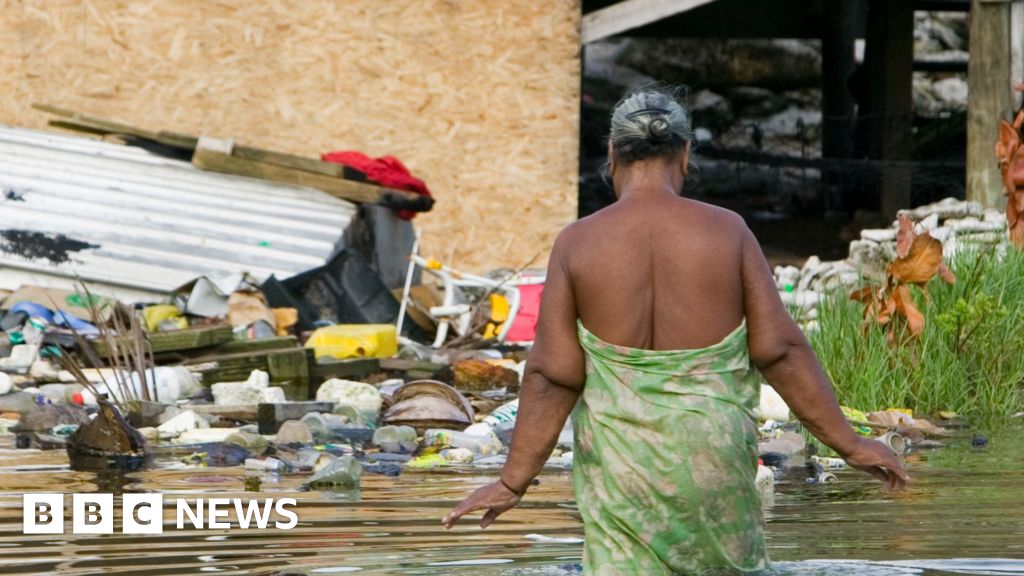
More than a third of Tuvalu’s population has entered the ballot for a pioneering climate visa that allows permanent migration to Australia. Opening for its first intake on June 16, the program has attracted significant interest, indicating it may be oversubscribed. Only 280 visas are available annually to Tuvalu citizens through this random ballot. Australia’s foreign affairs department has described the visa program as a groundbreaking response to climate-related displacement. Tuvalu, a small Pacific archipelago, is one of the world’s most climate-vulnerable nations, with its highest point just five meters above sea level.
As of June 27, there have been 1,124 applications submitted to the ballot, accounting for 4,052 Tuvalu citizens when including family members. According to the 2022 census, Tuvalu is home to 10,643 people. The Pacific Engagement visa, if granted, offers indefinite permanent residency in Australia, allowing holders to travel freely and access benefits such as Medicare, childcare subsidies, and educational opportunities at the same rates as Australian citizens. The entry fee for the 2025 ballot is A$25 (£11.93, $16.37), with applications closing on July 18.
Background and Program Details
The visa initiative is part of the Australia-Tuvalu Falepili Union, announced in August 2024. This agreement includes commitments from Canberra to support Tuvalu in natural disasters, public health emergencies, and potential military threats. Prime Minister Feleti Teo emphasized the significance of this commitment, stating, “For the first time, there is a country that has committed legally to recognize the future statehood and sovereignty of Tuvalu despite the detrimental impact of climate change-induced sea level rise.”
Scientists from NASA have projected that by 2050, much of Tuvalu’s land mass and critical infrastructure could be submerged below the current high tide level. This alarming prediction underscores the urgency for initiatives like the climate visa, which provide a lifeline for affected populations.
Implications for Tuvalu and Australia
The introduction of the Pacific Engagement visa marks a significant step in addressing climate migration, a growing global issue. For Tuvalu, this program offers a potential solution to the existential threat posed by rising sea levels. It also sets a precedent for other nations facing similar challenges, highlighting the need for international cooperation in addressing climate-induced displacement.
For Australia, the visa program represents a strategic move to strengthen ties with Pacific nations. It aligns with the country’s broader regional engagement strategy, which aims to bolster security and economic partnerships in the face of increasing geopolitical tensions in the Pacific.
Expert Opinions and Future Outlook
Experts in climate policy and migration have lauded the initiative as a forward-thinking response to a complex challenge. Dr. Jane Smith, a climate migration specialist, commented, “Australia’s climate visa program is a model for other nations. It acknowledges the reality of climate change and provides a humane solution for those most affected.”
However, the limited number of visas available raises questions about the program’s capacity to address the scale of the issue. As climate impacts intensify, the demand for such visas is likely to increase, prompting calls for expanded quotas and similar initiatives from other countries.
Looking ahead, the success of the Pacific Engagement visa could influence global policy discussions on climate migration. It may also drive further innovation in international agreements aimed at supporting vulnerable populations.
In conclusion, the climate visa program offers hope for Tuvalu citizens seeking a secure future amidst rising seas. It also challenges the international community to consider new approaches to climate-induced migration, emphasizing the need for collaborative solutions in an increasingly interconnected world.







